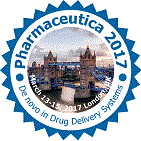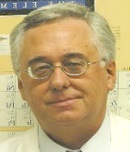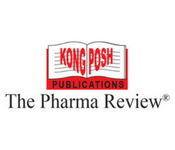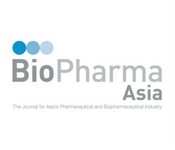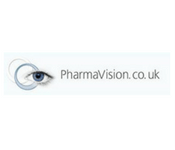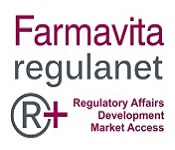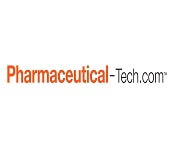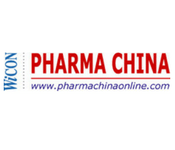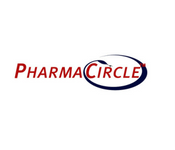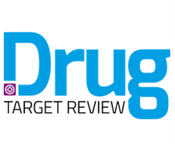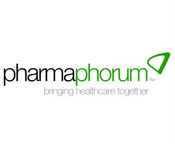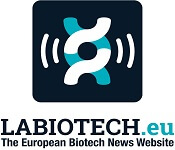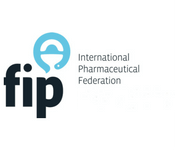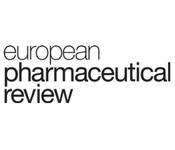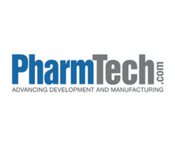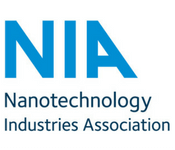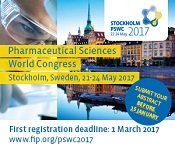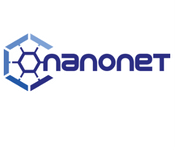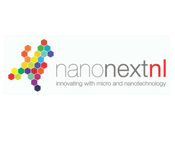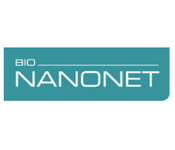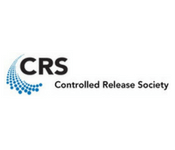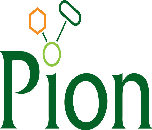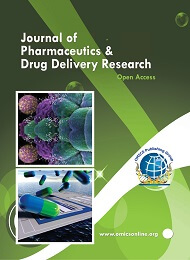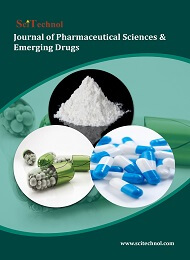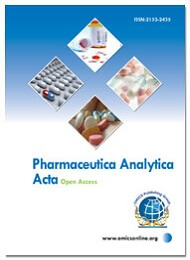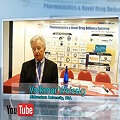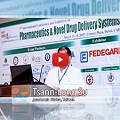Theme: De novo in Drug Delivery Systems
Pharmaceutica 2017
ConferenceSeries Ltd is a renowned organization that organizes highly notable pharmaceutical conferences throughout the globe.
After a successful conference of Pharmaceutica 2016, ConferenceSeries Ltd is currently bringing forth "10th International Conference and Exhibition on Pharmaceutics & Novel Drug Delivery Systems" (Pharmaceutica 2017) slated on March 13-15, 2017 at London, UK. The conference invites all the participants across the globe to attend and share their insights and convey recent developments in the field of Pharmaceutics and Novel Drug Delivery Systems.
2017 Highlights:
- 300+ Participation (70% Industry: 30% Academia)
- 5+ Keynote Speakers
- 50+ Plenary Speakers
- 20+ Exhibitors
- 14 Innovative Educational Sessions
- 5+ Workshops
- B2B Meetings
Exhibition:
Why exhibit?
- Make sales
- Debut new products
- Profile your brand
- Meet new business partners and suppliers
- Develop key relationships
- Educate healthcare, pharma and biotech institutions and academia
Who you will meet?
Leaders in:
- Drug Delivery
- Formulation
- Drug Development
- Nanotechnology
- QbD
- Delivery Devices
- Bioavailability
- New Products
- Pre-Formulation
- Process R&D
- CMC
- Stability
- Bio manufacturing
- Manufacturing
- Solid State Chemistry
- Analytical Development
- Product Enhancement
Who should sponsor?
- Analytical Services
- Formulation Development
- CMO
- Drug Delivery Technologies
- Full service CRO
- Preformulation testing
- Software
Why you should attend?
- Get to the heart of why formulation and delivery strategies fail. Dissect the challenges before looking for concrete solutions.
- Discover how advances in the sector are impacting both large and small molecule drugs.
- Explore tried and tested routes to improve bioavailability.
- Understand how to develop the right formulation and delivery strategy with a strong scientific, clinical and commercial mind set.
- Discover the latest innovations in drug delivery devices.
- Be inspired by innovative case studies and realise the potential impact on your formulation or delivery processes.
- Engage in the exciting event format, with round tables, panels, showcases, speed networking and multiple conference tracks.
- Share experiences, insights and strategies in interactive peer-to peer round tables.
- Hear more perspectives in one place – from large medium and small organisations from pharma, biotech and academia.
- Discover how scientific formulation advancements are being implemented in practice.
- Get to the heart of why formulation and delivery strategies fail. Dissect the challenges before looking for concrete solutions.
ConferenceSeries Ltd is a renowned organization that organizes highly notable pharmaceutical conferences throughout the globe.
After a successful conference of Pharmaceutica 2016, ConferenceSeries Ltd is currently bringing forth "10th International Conference and Exhibition on Pharmaceutics & Novel Drug Delivery Systems" (Pharmaceutica 2017) slated on March 13-15, 2017 at London, UK. The conference invites all the participants across the globe to attend and share their insights and convey recent developments in the field of Pharmaceutics and Novel Drug Delivery Systems.
2017 Highlights:
- 300+ Participation (70% Industry: 30% Academia)
- 5+ Keynote Speakers
- 50+ Plenary Speakers
- 20+ Exhibitors
- 14 Innovative Educational Sessions
- 5+ Workshops
- B2B Meetings
Exhibition:
Why exhibit?
- Make sales
- Debut new products
- Profile your brand
- Meet new business partners and suppliers
- Develop key relationships
- Educate healthcare, pharma and biotech institutions and academia
Who you will meet?
Leaders in:
- Drug Delivery
- Formulation
- Drug Development
- Nanotechnology
- QbD
- Delivery Devices
- Bioavailability
- New Products
- Pre-Formulation
- Process R&D
- CMC
- Stability
- Bio manufacturing
- Manufacturing
- Solid State Chemistry
- Analytical Development
- Product Enhancement
Who should sponsor?
- Analytical Services
- Formulation Development
- CMO
- Drug Delivery Technologies
- Full service CRO
- Preformulation testing
- Software
Why you should attend?
- Get to the heart of why formulation and delivery strategies fail. Dissect the challenges before looking for concrete solutions.
- Discover how advances in the sector are impacting both large and small molecule drugs.
- Explore tried and tested routes to improve bioavailability.
- Understand how to develop the right formulation and delivery strategy with a strong scientific, clinical and commercial mind set.
- Discover the latest innovations in drug delivery devices.
- Be inspired by innovative case studies and realise the potential impact on your formulation or delivery processes.
- Engage in the exciting event format, with round tables, panels, showcases, speed networking and multiple conference tracks.
- Share experiences, insights and strategies in interactive peer-to peer round tables.
- Hear more perspectives in one place – from large medium and small organisations from pharma, biotech and academia.
- Discover how scientific formulation advancements are being implemented in practice.
- Get to the heart of why formulation and delivery strategies fail. Dissect the challenges before looking for concrete solutions.
Title: 10th International Conference and Exhibition on Pharmaceutics & Novel Drug Delivery Systems
Date & Venue: March 13-15, 2017 London, UK
Theme: De novo in Drug Delivery Systems
Summary of Pharmaceutica 2017 Conference:-
Pharmaceutica 2017 provides the perfect platform for just this as an interactive and engaging 3-day event: unique in format, content, networking and engagement. The event brings together truly innovative thinkers who are leading the way through trialing new disruptive solutions and rethinking the conventional formulation and delivery mind-set and will help you to better understand how to develop the right formulation and delivery strategy with a strong scientific, clinical and commercial mind set and how innovative scientific techniques, emerging technologies and innovative devices can transform formulation and drug delivery.
Scope and Importance:-
Pharmaceutics is the discipline of pharmacy that deals with the process of turning a new chemical entity (NCE) or old drugs into a medication to be used safely and effectively by patients. It is also called the science of dosage form design. There are many chemicals with pharmacological properties, but need special measures to help them achieve therapeutically relevant amounts at their sites of action. Pharmaceutics helps relate the formulation of drugs to their delivery and disposition in the body. Pharmaceutics deals with the formulation of a pure drug substance into a dosage form. Branches of pharmaceutics include:
- Pharmaceutical formulation
- Pharmaceutical manufacturing
- Dispensing pharmacy
- Pharmaceutical technology
- Physical pharmacy
- Pharmaceutical jurisprudence
About Venue:
London is the capital and most populous city of England and the United Kingdom. Standing on the River Thames in the south east of Great Britain, London has been a major settlement for two millennia. It was founded by the Romans, who named it Londinium. London's ancient core, the City of London, largely retains its 1.12-square-mile (2.9 km2) medieval boundaries and in 2011 had a resident population of 7,375, making it the smallest city in England. Since at least the 19th century, the term London has also referred to the metropolis developed around this core. The bulk of this conurbation forms Greater London, a region of England governed by the Mayor of London and the London Assembly. The conurbation also covers two English counties: the small district of the City of London and the county of Greater London. The latter constitutes the vast majority of London, though historically it was split between Middlesex (a now abolished county), Essex, Surrey, Kent and Hertfordshire.
London is a leading global city, with strengths in the arts, commerce, education, entertainment, fashion, finance, healthcare, media, professional services, research and development, tourism, and transport all contributing to its prominence. It is one of the world's leading financial centres and has the fifth-or sixth-largest metropolitan area GDP in the world depending on measurement. London is a world cultural capital. It is the world's most-visited city as measured by international arrivals and has the world's largest city airport system measured by passenger traffic. London is the world's leading investment destination, hosting more international retailers and ultra-high net-worth individuals than any other city. London's 43 universities form the largest concentration of higher education institutes in Europe, and a 2014 report placed it first in the world university rankings. According to the report London also ranks first in the world in software, multimedia development and design, and shares first position in technology readiness. In 2012, London became the first city to host the modern Summer Olympic Games three times.
London has a diverse range of peoples and cultures, and more than 300 languages are spoken within Greater London. The Office for National Statistics estimated its mid-2014 population to be 8,538,689, the largest of any municipality in the European Union, and accounting for 12.5 percent of the UK population. London's urban area is the second most populous in the EU, after Paris, with 9,787,426 inhabitants according to the 2011 census. The city's metropolitan area is one of the most populous in Europe with 13,879,757 inhabitants, while the Greater London Authority states the population of the city-region (covering a large part of the south east) as 22.7 million. London was the world's most populous city from around 1831 to 1925.
Societies Associated with Pharmaceutical Research:-
City Statistics:-
London
- Royal Pharmaceutical Society (RPS)
- British Pharmacological Society
- Academy of Pharmaceutical Sciences
- Royal Society of Chemistry
Country wise Statistics:-
UK
- Association of the British Pharmaceutical Industry (ABPI)
- Bandolier
- British National Formulary (BNF)
- British National Formulary for Children (BNFC)
- British Pharmacopoeia Commission (BPC)
- Cochrane Collaboration
- Commission on Human Medicines
- Department of Health (DoH)
- DrugScope
- General Pharmaceutical Council (GPhC)
- Medicines and Healthcare products Regulatory Agency (MHRA)
- National Institute for Health and Clinical Excellence (NICE)
- National Patient Safety Agency (NPSA)
- NHS Confederation
- Pharmaceutical Services Negotiating Committee (PSNC)
- Pharmaceutical Society of Northern Ireland
- Pharmacists' Defence Association (PDA)
- Royal Pharmaceutical Society (RPS)
- Scottish Medicines Consortium (SMC)
- UK Clinical Pharmacy Association
- UKMedix (UKM)
- Worshipful Society of Apothecaries of London
- Veterinary Medicines Directorate
Worldwide Statistics:-
International
- International Pharmaceutical Federation (FIP)
- International Pharmaceutical Students' Federation (IPSF)
- European Association of Employed Community Pharmacists in Europe (EPhEU)
- European Pharmaceutical Union (EPU)
- Pharmaceutical Group of the European Union (PGEU)
- Australian College of Pharmacy
- Pharmaceutical Society of Australia
- The Pharmacy Guild of Australia
- The Society of Hospital Pharmacists of Australia
- Canadian Pharmacists Association
- Canadian Society of Hospital Pharmacists
- Chinese Pharmaceutical Association
- Danish Association of Pharmaconomists
- Indian Pharmacist Association
- Pharmaceutical Society of Ireland
- The Pharmaceutical Association of Israel
- Kuwait Pharmaceutical Association
- Pharmaceutical Association of Mauritius
- Pharmaceutical Society of New Zealand
- Norwegian Pharmacy Association
- Pakistan Pharmacists Association
- National Pharmacy Association
- Pharmaceutical Society of Northern Ireland
- Royal Pharmaceutical Society (RPS)
- American Association of Colleges of Pharmacy (AACP)
- American Pharmacists Association (APhA)
- American Society for Pharmacy Law
- American Society of Consultant Pharmacists (ASCP)
- American Society of Consultant Pharmacists Foundation
- American Society of Health-System Pharmacists (ASHP)
- Professional Compounding Centers of America
- American College of Clinical Pharmacy (ACCP)
Statistical Representation:-
Industries Associated with Pharmaceutical Research:-
List of Pharmaceutical Companies in London:
List of Pharmaceutical Companies in UK:
List of Pharmaceutical Companies in the World:
Statistical Representation:-
Market Value on Pharmaceutical Research:-
Country Statistics:-
Top 10 pharmaceutical companies based on European prescription drug revenues in 2014 (in billion U.S. dollars)
This statistic depicts the top ten pharmaceutical companies based on prescription drug revenues in Europe in 2014. In that year, GlaxoSmithKline generated 8.1 billion U.S. dollars of prescription drug revenue in Europe. Global prescription drug sales are expected to reach about one trillion U.S. dollars by 2020. There is an increasing growth in sales of biological products.
Worldwide Statistics:-
Top 20 pharmaceutical companies based on worldwide prescription drug revenues in 2014 (in million U.S. dollars)
The top pharmaceutical companies in the world are Novartis, Pfizer, and Sanofi, based on 2014 pharmaceutical revenues. The companies generated 51.3 billion U.S. dollars, 44.9 billion U.S. dollars, and 40 billion U.S. dollars, respectively, in the year 2014.
Pharmaceutical companies are best known for manufacturing pharmaceutical drugs. These drugs have the aim to diagnose, to cure, to treat, or to prevent diseases. The pharmaceutical sector represents a huge industry, with the global pharmaceutical market being worth nearly one trillion U.S. dollars. The best known top global pharmaceutical players are Pfizer, Merck and Johnson & Johnson from the U.S., Novartis and Roche from Switzerland, Sanofi from France, etc. Most of these companies are involved not only in pure pharmaceutical business, but also manufacture medical technology and consumer health products, vaccines, etc. For example, Johnson & Johnson makes most of its revenues through medical devices, diagnostics and consumer health products.
Market Growth of Pharmaceutical Research in the last and upcoming ten years
Pharmaceuticals are one of the world's most profitable industries. During the last 30 years, the industry has spent billions of dollars on research and reaped billions in return. In 2008 alone, the pharmaceutical industry sold $773 billion in products worldwide-a number that has consistently grown for the past 8 years and is projected to increase again by 2.5 to 3.5 percent in 2017, according to the drug market research firm IMS Health.
But the process that turns research dollars into medicines is a slow and often arduous one. It now takes an average of 12 to 15 years and up to $1.7 billion for a drug to go from discovery to market, according to The Pharmaceutical Research and Manufacturers of America. And despite all the time and money invested, only a handful of drugs are approved by the FDA each year.
The arduous drug approval process reveals a central fact about Big Pharma: it's one of the most intensely regulated industries in the world. The U.S. Food and Drug Administration (FDA) and its European Union counterpart, the European Medicines Agency (EMEA), govern every aspect of a drug's development-from chemicals used in the drug and clinical study instructions, called protocols, to packaging components and marketing materials. This strict oversight is meant to protect patient safety, and pharma companies take regulatory oversight seriously. The constant pressure to adhere to government mandates shapes every aspect of a pharma firm's organization, operations, and culture. For example, drug companies maintain powerful regulatory affairs divisions-the departments that deal with government agencies-and they tend to be risk-averse.
Country Statistics:-
- Growth in the EU5 is expected in the -1 to 2% range through 2016 compared to 3.8% for 2007-11, as national debt incurred due to the global economic crisis will be addressed through austerity programs and healthcare cost containment.
- Limited savings from patent expires in the forecast period are prompting policy shifts to encourage greater use of generics and lower reimbursement, particularly in Spain.
- Policies to examine the value newer medicines bring, when assessing their reimbursement prices, are being adopted in the UK with “value-based pricing” and in Germany with assessments under the AMNOG program.
- Governments will take direct actions to control spending growth, or in some cases make real reductions, particularly in hospital spending.

Products manufactured by the industry relating to Pharmaceutical Research:-
Funds allotted to Pharmaceutical Research:-
Worldwide:-
Pharma companies have traditionally funded their internal R&D efforts totally on their own by investing 15% or more of their top line revenues to pay for these endeavours’. In addition, in order to tap into R&D going on outside their companies, pharma has financially supported external R&D efforts in deals with small biotech companies, research institutes, and universities. In fact, as funding for agencies like the NIH has stagnated over recent years, pharma has become an important source of funds to support early stage research.
Despite R&D budgets in the billions of dollars, pharma is now seeking to supplement their internal R&D investments with outside funding. One source has been major foundations. The recent Cystic Fibrosis Foundation investment of $58 million into Pfizer R&D to support new research into areas for this disease is a perfect example. The justification for such deals is that pharma companies have a proven R&D track record for delivering new medicines, and the foundations feel that, by tapping into these scientists, they can maximize their chances for getting breakthrough medications.
Now Pharma has found a new investor for its R&D efforts – the U.S. government. In what is being hailed as the a “first-of-its-kind” collaboration, GlaxoSmithKline (GSK) has entered into a potential $200 million antibiotics pact with the Biomedical Advanced Research and Development Authority (BARDA), a division of Health & Human Services (HHS), to develop drugs to fight antibiotic resistance and bioterrorism. HHS will provide $40 million for the first 18 months of the deal to develop several antibiotics in the GSK portfolio. The work will be monitored by a joint BARDA-GSK committee and, if warranted, the agreement can be renewed with HHS providing additional funding of up to a total of $200 million over 5 years.
Federal Agencies:-
- Grants.gov
- NIH Grants & Funding
- USFDA
- NSF Funding
- USDA NIFA Grants
- AHRQ Funding & Grants
- PCORI Funding
- DOD Grants
- DARPA (Defense Advanced Research Projects Agency)
Non-Federal Research Associations and Foundations:
- Agency for Healthcare Research & Quality (AHRQ)
- National Pharmaceutical Council
Pharmacy research funding
- Harold and Marjorie Moss Charitable Trust: -
- This charitable trust awards funds for pharmacy training at undergraduate, postgraduate and doctorate level.
- The Leverhulme Trade Charities Trust:-
- The Leverhulme Trade Charities Trust makes grants for the benefit of chemists, commercial travellers and grocers. Pharmacists are able to apply for undergraduate and postgraduate bursaries.
- The National Pharmacy Association:-
- The National Pharmacy Association Health Education Foundation offers a bursary intended to support community pharmacists who wish to develop their skills to undertake research relating to community pharmacy practice.
- The United Kingdom Clinical Pharmacy Association:-
- The UKCPA offer a number of annual awards for various aspects of clinical practice, patient safety and IT.
Members Associated with Pharmaceutical Research:-
In regard to Industrial personnel:
Research Positions:-
- Lab technician
- Research Associate
- Research Scientist
Clinical Development and medical Jobs:-
- Clinical Research Physician
- Clinical Research Associate
- Regulatory Affairs Associate
- Bio Statistician
- Clinical Data Manager
- Medical Science Liaison
Manufacturing and Quality Assurance Jobs:-
- Process Engineer
- Quality Control Analyst
- Quality Assurance Specialist
Business Operations Jobs:-
- Market research Analyst
- Associate Product Manager
- Product Manager
- Strategy Director
- Business Development Manager
Apart from the industrial personnel where most of the research work is done, other research communities include:-
- Academicians include Student community.
- Researchers include Post docs, Research Associates.
- Scientists include Professors, Associate professors, and Assistant professor.
- Industries include Presidents, CEO’s, and R&D Managers.
Statistical representation:-
Biliography:-
http://www.phrma.org/sites/default/files/pdf/2014_PhRMA_PROFILE.pdf
http://www.efpia.eu/uploads/Figures_2014_Final.pdf
http://www.ifpma.org/about-ifpma/members/associations.html
http://www.ezilon.com/business/biotechnology_and_pharmaceuticals/index.shtml
http://www.wetfeet.com/articles/career-overview-pharmaceuticals
http://www.aacp.org/resources/research/Pages/ResearchFundingOpportunities.aspx
Conference Highlights
- Pre-Formulation & Formulation Aspects
- Pharmacokinetics and Pharmacodynamics in Drugs
- Drug Targeting and Design
- Routes of Drug Delivery
- Nanoparticulate Drug Delivery Systems
- Nanotechnology in Drug Delivery
- Pharmaceutical Nanotechnology
- Smart Drug Delivery Systems
- Biomaterials in Drug Delivery
- Vaccine Drug Delivery Systems
- Medical Devices for Drug Delivery
- Peptides and Protein Drug Delivery
- Global Drug Delivery Policy
- Entrepreneurs Investment Meet
To share your views and research, please click here to register for the Conference.
To Collaborate Scientific Professionals around the World
| Conference Date | March 13-15, 2017 | ||
| Sponsors & Exhibitors |
|
||
| Speaker Opportunity Closed | Day 1 | Day 2 | Day 3 |
| Poster Opportunity Closed | Click Here to View | ||
Useful Links
Special Issues
All accepted abstracts will be published in respective Our International Journals.
- Journal of Pharmaceutics & Drug Delivery Research
- Journal of Pharmaceutical Sciences & Emerging Drugs
- Pharmaceutica Analytica Acta
Abstracts will be provided with Digital Object Identifier by

